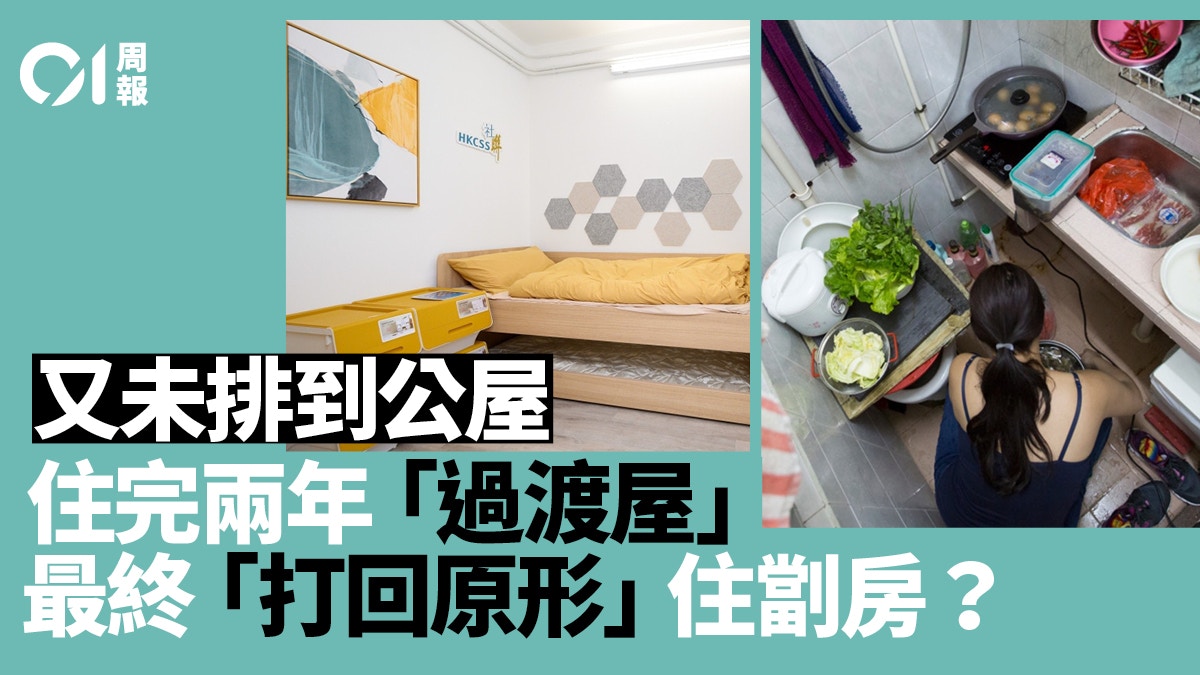The subdivided rent control law will come into effect on January 22, and each renewal of rent will not increase by more than 10%, but it is still difficult to guarantee that the living environment will be improved.
In recent years, the government has taken advantage of the development of transitional housing, hoping to help solve the current dire housing problem, so that subdivided tenants can have breathing space, but the next step for grassroots tenants may not be "public housing."
The Hong Kong Council of Social Service (HKCSS) is responsible for Hong Kong’s first modular social housing "Nanchang 220". The lease is only for two years. At present, about 10% of the tenants are allocated public housing. Although it is expected that it will increase by about 10%, but For the remaining tenants who have not yet been able to "go upstairs", the HKCSS still needs to assist them in applying for other transitional housing.
In the social housing project of the Community Organization Association (Social Association), Shuncheng Building, West Loop, some residents still failed to "go upstairs" after the lease expired, and eventually returned to the subdivided housing.
According to the Social Association, many transitional housing projects require applicants to wait for public housing for at least three years. “It’s not that everyone can get public housing in three years. Some people can only go to public housing for ten years...single people even decades.” When the grassroots live in social housing, social associations help tenants save, and when tenants relocate, they will try their best to find "conscientious owners" for them.
In 2017, Chief Executive Carrie Lam Cheng Yuet-ngor issued his first "policy address" and mentioned the need to increase the supply of transitional housing to alleviate the problems of families waiting for public housing and people with poor living conditions.
However, can transitional housing really completely ameliorate the predicament?
How will the authorities review the pros and cons and provide support?
Mr. Huang's family of three moved into the social housing of Shuncheng Building, Xihuan, and finally had ample space for activities, and the family regained their smiles.
(Photo by Lu Yiming)
For more details, please read the 298th "Hong Kong 01" Electronic Weekly Newsletter (January 3, 2022) "
Social Housing" Tenants who relocate in sub-divided houses successfully went upstairs
."
Click here
to sample the weekly electronic newsletter and browse more in-depth reports.
Other exclusive highlights of the
298th issue of "Hong Kong 01" Electronic Weekly News :
"Fifty Years Unchanged" Mid-Term Outlook-The Way of All Benefits, Keeping Up with the Times
The new term of the Legislative Council should absorb the support of the whole society with its performance
Under the new crown epidemic, customs clearance is stagnant, vaccine passports are imperative
The Triangle Relations between Great Powers in the New Era
Transitional housing for four years of rugged road participating institutions: can save lives
The enlightenment of Omicron and the fourth needle Is it time to develop a universal vaccine?

